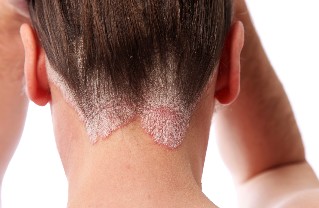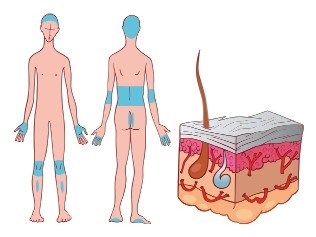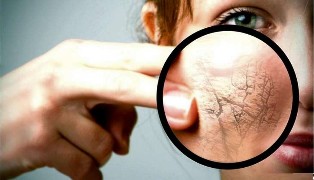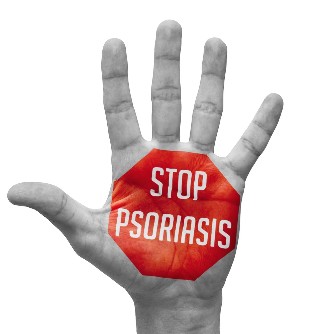
What is psoriasis
Psoriasis (scaly versicolor) – this non-infectious chronic skin disease, which manifests itself in the form of flaking and rashes on the skin. It is characterized by arc current, with periods of remission (improvement), and periods of exacerbations. The disease can develop at any age, but more often the psoriasis affects people of young age.
The intensity of the psoriasis may vary at different stages. The disease may affect only small areas of skin or cover the entire body. Often, the disease progresses, patients notice that with time (in the next period of exacerbation) psoriasis affects the greater surface area of the epidermis. In addition to the skin, they also provide the psoriasis of the nails, which can occur in isolation.
Psoriasis – causes of the onset of the disease
The cause of psoriasis is unknown, but cause the disease may be immunological changes in the body (autoimmune aggression), neurological disorders, disorders metabolic. Favor the development of psoriasis, the inheritance, the descent of the immunity after the illness, the stress.
Today, among the causes and factors of development of psoriasis are distinguished the following:
- Hereditary predisposition (genetic theory of evolution of the psoriasis). The probability of development of psoriasis above, if the person to the next of kin to suffer this disease. It is possible that some groups of genes are responsible for the compliance of the psoriasis.
- Neuropsychiatric surge (neurogenic theory of the evolution of psoriasis). It is known that psoriasis can be triggered by strong emotional crisis. The stress of serious factors of development of the disease. People with psoriasis, stress can be the cause of a worsening of the disease.
- Hormonal disorders. Changes in the functioning of the endocrine glands can become a mechanism in the development of psoriasis.
- The alteration of the metabolism (exchange of the theory of evolution of the psoriasis). Problems with the exchange of substances, some vitamins and microelements (in particular, of silicon), it is possible to contribute to the onset of psoriatic platelets.
- Parasites. It is considered parasitic theory of the evolution of psoriasis, according to which the disease is caused by some intestinal parasites. Numerous studies show that among people that suffer from psoriasis, many different means of parasitic infection. As believe scientists, a special role in the development of the disease can play ascaride, giardia, bull tsepen, and others. It is considered that the toxic chemicals that emit these parasites are potent allergens, which becomes the cause of the imbalances in the functioning of the immune system.
- The viral infections.
And although the causes of the development of the psoriasis is not until the end of the sorted out, today the medicine is known the mechanism of occurrence of this pathology. On the basis of the appearance of psoriatic rash est violation of work of the immune system. The immune cells become aggressive with regards to their own skin cells, which causes the appearance of psoriatic platelets.
Psoriasis – symptoms
The psoriasis is manifested by the appearance of peeling patches, plaques of red, itching. Stains most often are placed on the skin of the scalp, * the joints of the knees, in the areas of the folds of the skin. With time, surface scales easy to remove, in its place, remain the most thick scales located in the depth. The progression of the psoriasis occurs the so-called phenomenon of the Kebnera: the onset of psoriatic of platelets at the sites of scratches or wounds of the skin.
Here are the characteristic symptoms for the different types of psoriasis:
- Psoriasis in the form of platelets looks like raised above the surface of the skin healthy plots red, inflamed, dry, thick, hot to the touch of the skin, covered with silvery-white scales (psoriatic plaque). The skin in these areas tends to peel. In the place of the skin that has been lowered continue to be red flags, easily, and bleed. Psoriatic plaques are usually fused to each other, increasing in size and shape plates plates ("wax of the lake"). When psoriasis bending of the surfaces of peeling is expressed weakly. Arise red spots that is found in the skin folds (in the groin, the area of the external genitalia, the internal surface of the thighs, the folds of the belly, axillary cavity).
- Guttate psoriasis is characterized by the large amount of dry, small, red or purple defeats, elevated above the surface of the skin, reminiscent of teardrops or circles. These elements affect large areas of the skin. Guttate psoriasis often develops after having a streptococcal infection (e.g. pharyngitis, or sore throat).
- Pustular psoriasis looks like raised above the surface of the skin without alterations bubbles, transparent, full of content. The pustules are surrounded by red, edematous skin, that exfoliates easily. Psoriasis of the nails is characterized by the change of color of the nail, the nail, the appearance of dots, spots, transverse striations in the fingernails, strengthened from the skin around the nail, and reinforced the stratification of the nail, the full loss of the nail.
- Psoriatic arthritis is accompanied by swollen processes in the joints and the connective tissue. Psoriatic arthritis most commonly affects the small joints of phalanges distal ends of the fingers of the hands, the feet, causing psoriatic dactylitis. Psoriatic erythroderma is manifested common skin desquamation and inflammation, detachment of the skin in a large part of the surface of the body, the inflammation, tenderness of the skin, intense skin itching.
Other symptoms of psoriasis are:
- bleeding of the area of the skin;
- the appearance of erosions and pits in the nails;
- itching;
- it is possible pain in the joints and swelling.

Classification of psoriasis
We distinguish the following types of psoriasis:
- vulgar (or common) psoriasis;
- exudative psoriasis;
- arthropathic psoriasis;
- psoriatic erythroderma;
- psoriasis the palms of the hands and soles of the feet;
- pustular psoriasis.
Psoriasis develops in three stages:
- The stage of psoriasis. This is the first phase of the disease, which is characterized by the worsening of that there has been an increase in the amount of fresh eruptions.
- It sets the stage of psoriasis. This period is characterized by the use of the current conservation of the work of the disease. Rashes and other symptoms of psoriasis is neither more nor less.
- The stage of the psoriasis away. It is the final stage of the disease, in which the precipitation does not exist.
In function of the prevalence of the injury of the process of the psoriasis is:
- limited – surprises with small areas of the body;
- common, and affects large areas of the body;
- widespread – attacks to almost all of the body.
Depending on the season, when the illness worsens, psoriasis is:
- winter – worsening of psoriasis, as a general rule, occurs in the cold period of the year;
- years – worsening of psoriasis occurs in the summer months;
- undefined – when the periods of exacerbation of psoriasis are not associated with any season of the year.
The diagnosis of psoriasis
Disease diagnosed, the doctor dermatologist, based on the typical clinical picture. To clarify the diagnosis, apply the skin biopsy.
The activity of the patient
You can take the sun for 15 minutes every day. You should avoid the consumption of alcohol, avoid stress, weight control and live a healthy life, take care of the skin.

The treatment of psoriasis
For the treatment of psoriasis, apply the emollients, medications that are retrieved from the horny layer, local treatments (ointments, lotions, creams) content of glucocorticoids (hydrocortisone, prednisolone, dexamethasone), preparations with a content of zinc pyrithione, the ointment content of the analogues of vitamin D3, the tar, of naftalan, hydroxyestrone. In the severe forms of psoriasis, inefficiency, outside of therapy, the defeat of more than 20% of the surface of the skin prescribed system of drug therapy, including cytostatic drugs (methotrexate), retinoids are synthetic (acetate, retinol, retinol palmitate, tretinoin), glucocorticoids, vitamins (aevitum etc.).
A special role in the treatment of psoriasis should be removed some biologically active substance, between which include:
- Silicon. In recent years, physicians increasingly are speaking out about the role of silicon in the development of psoriasis. One of the components of treatment of the psoriasis are medications and vitamin-mineral complexes containing silicon. On the one hand, silicon improves the condition of the skin, and on the other acts as an absorbent, which absorbs in themselves antigens that play a role in the development of psoriasis.
- Vitamin D. As you know, one of the most important of the minerals needed for the success of the fight against psoriasis, it is the calcium. However, for the normal absorption of calcium need vitamin D. Best of all vitamin D supplements include after the transition of the active phase of psoriasis in the fixed installation.
- The fish oil and omega-3 fatty acids acid. For the resolution of the inflammatory process in psoriasis is necessary to enter in the body omega-3 polyunsaturated fatty acids, in which a large amount of content in the fat of cod liver oil.
- The lecithin. This substance is necessary for the fast recovery of the epithelial cells, which perish in the psoriasis. Drugs with lecithin allow you to deal with the inflammatory process and restore the integrity of the epidermis.
Non-drug therapy consists of photochemotherapy, radiation of the ultraviolet light with a wavelength of 320-400 NM in the background of the reception of the photosensitizers (puva-therapy). Also use cryotherapy, plasmapheresis.
The patient must follow a special diet. Diet for psoriasis should be balanced. The patient should exclude the intake of refined food products, acute, sweet and salty. You must take care of your health and to avoid by all means one of the diseases of cold, as any violation of the immunity can lead to the development of the disease.
Complications
Among the possible complications of the arthritis, the depression caused by low self-esteem.

The prevention of psoriasis
To prevent the disease is impossible, but there are methods to weaken the manifestations of the psoriasis and reduce the number of exacerbations. It must protect the skin from curl, avoid prolonged exposure to the sun, try to avoid lesions of the skin. You should avoid stressful situations, infections, the reception of medications that reinforce the manifestations of psoriasis (e.g., beta-blockers, lithium), stopping smoking, limiting the consumption of alcohol. And remember, the treatment of psoriasis you should rely on professionals. The treatment of psoriasis in the household, and any type of self-medication of this disease are not valid.























